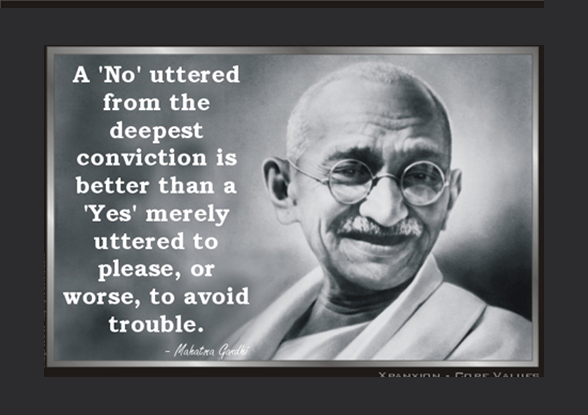“A man is literally what he thinks, his character being the complete sum of all his thoughts.” ― James Allen, As a Man Thinketh

Authenticity is the basis of Transformational Leadership. Without authenticity and integrity, the leader has no influence. Attempting to implement like someone else, or making decisions out of integrity, is stifling for leadership.
Acting one way at the job and a different way in private reveals things to others that might not be complementary and certainly not consistent. Clarity is the first principle of strong leadership. Managing self is a close second.
James Allen also wrote that, “Circumstances don’t make a man, they reveal who he is to himself and others.” When we have to pretend to be authentic, but the mask comes off with stress, we reveal our true selves…sometimes to our detriment.
My four leadership principles are 1) Foundations (Vision & Skills); 2) Relationships; 3) Systems; and 4) Balance. Principle #3, Systems, is about effective processes…we rehearse for excellence just as a musical ensemble does. We can rehearse the bad notes, or rehearse the right ones. When we pretend, we might be rehearsing for good, however, when we vary from that model, which is not authentic, then we are in danger of revealing our true selves.
Isn’t it easier to just do the right thing?
Here are some of my definitions of authenticity in leaders:
- Vision Focused: Engagement of team members is strategy dependent. Defining the vision and working with team leaders on implementation is the duty and delight of leaders. Boldly claiming the vision and being excellent in articulating that vision, along with why it’s important, is key. People will follow with passion when they understand why it’s important.
- Self-Aware: Understanding self is the key to relationships. Understanding others is the key to community. Listening is still a top, and very underutilized, skill for many leaders. Gathering information, especially about one’s self and one’s effectiveness, shows willingness to be vulnerable. Being vulnerable means moving ego aside and being aware of one’s skills and gaps. Leadership is defining gaps and filling those gaps with competent people.
- Constantly Improving Self: Claiming to have arrived at the top of the leadership competency pyramid is a sure sign that the leader is clueless and is not working on building skills and systems. The best leaders are constantly working on systems and self. Constant improvement is way different from the lame business model of “Continuous Improvement.” We can do better.
- Results Driven and People Sensitive: Some leadership writers push for empathy and leading with the heart. Having studied Bowen Leadership Systems for many years, I now understand that poor leaders make emotional, not thinking, decisions. Value people. Make decisions based on mutually defined guiding principles and not on emotion. After all, it’s better for those we lead to respect us rather than our attempting to make decisions based on them “liking” us. Who likes a leader who gives in to emotion and violates principles?
- Inclusive: Valuing the people we lead means valuing ALL the people we lead. There’s something to learn from each one of them…good and bad. I’ve learned some of my best lessons from people I least expected could teach me anything. I did learn because I was paying attention. Sometimes it’s a Kairos (καιρός) moment!
What are some other definitions of being an authentic leader? Why are those important?












